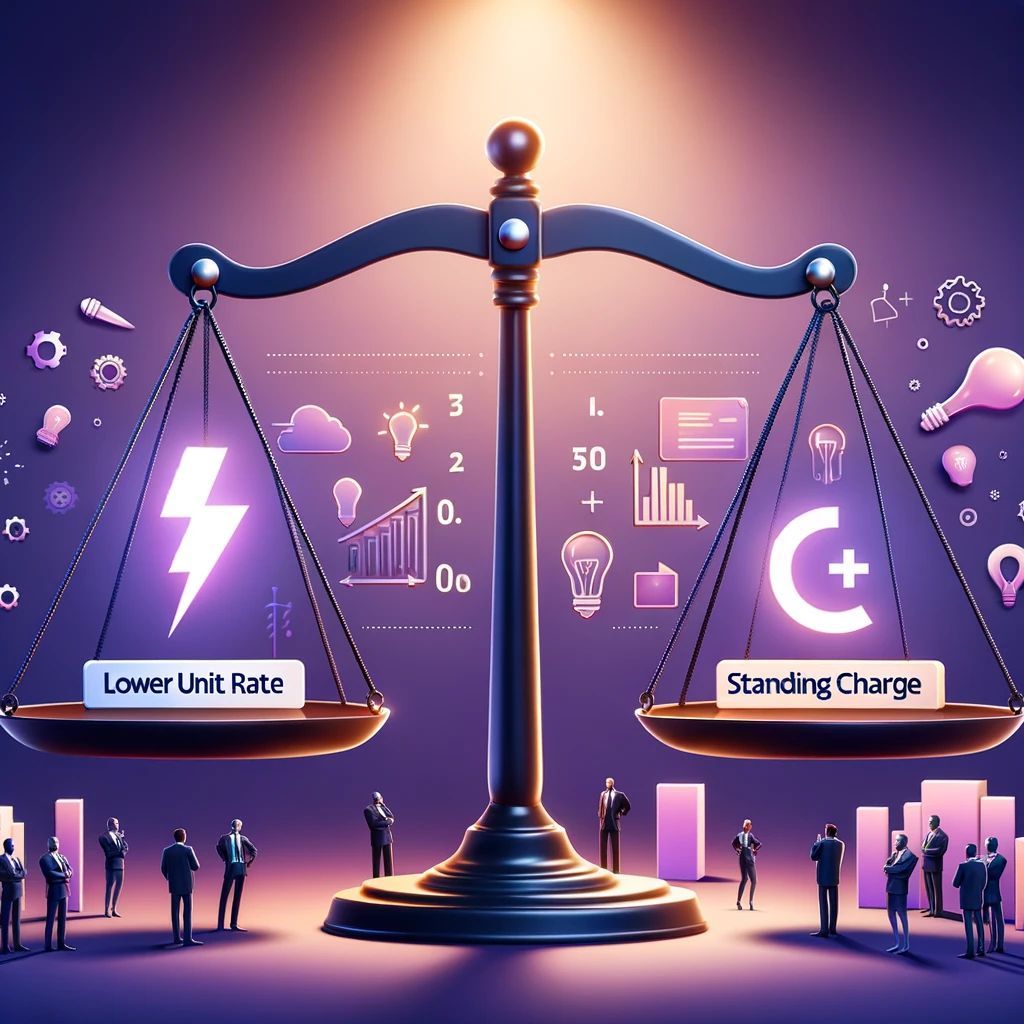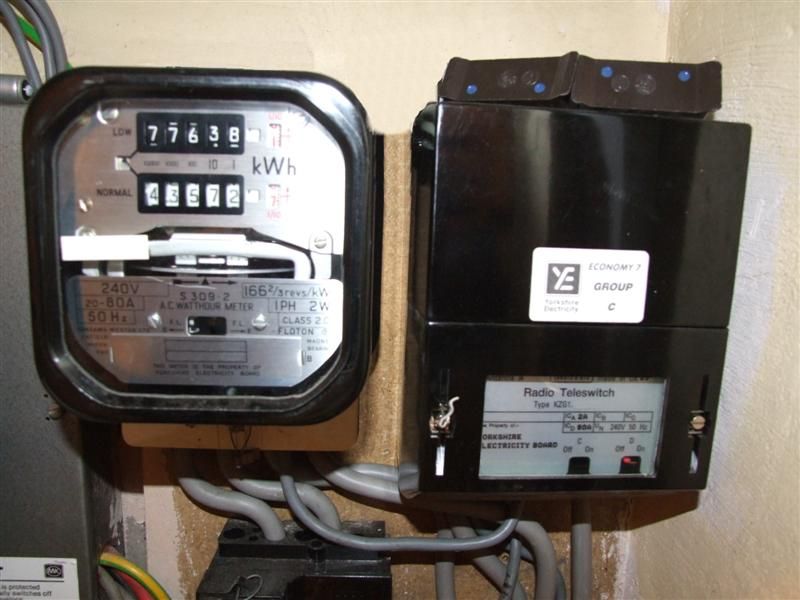Lower unit rate or lower standing charge – which should you choose?

What is a unit rate?
The unit rate is the price you will pay for each kilo-watt of energy you use, weather it is gas or electricity.
If your unit rate is 20.67p per kWh, you will pay 20.67p for every kilowatt per hour of electricity you use.
Example -
You have a restaurant that has :
- 7 kWh Electric Boiler
- 5 kWh Large commercial Fridge/Freezer
- 2 KWh Induction Hob
If we combine all of these three together for the total amount of usage, then it totals: 14 kWh per hour. Lets say you run everything on the maximum setting continually for one hour. You will use the full 14 kWh.
If your unit rate is 20.67 p/kWh, we just have to do 20.67 (cost in pence) x 14 (energy units used) = 289.39 (pence), this number is in pence as energy in measures in pence per kilowatt. So we have to divide by 100 so it is in pounds. (289.39 / 100) meaning it will cost £2.89 to run all of the restaurants equipment each hour.
If your business uses a considerable amount of energy, having the lowest unit rate is ideal. Purely Energy, look on the national database to see how many KWh (annual consumption) you have used over the last 12 months and advise you what is best to do for your business.
What is a standing charge?
A standing charge is a fixed amount of money you are charged daily to cover the cost of delivering gas and electricity to your business, this is usually charged in pence per day. If you have a large commercial meter, you may be charged in £ per day. This price will stay the same regardless of how much energy you use.
Therefore, opting for a lower standing charge is best if you have a vacant premise. We have many 0 standing charge options, whilst your premises is empty.
You can read more about the best tariffs for a vacant property here.
What determines energy standing charges?
Location – Depending on where in the UK you are based, your standing charge energy prices will vary. This is dependent on the infrastructure that delivers power to your area.
Maintenance – Each energy supplier has costs for maintaining the energy supplier networks, pipes, and wires.
Government Payments – Suppliers contribute towards government goals to reduce CO2 emissions.
Meter readings – Each supplier ensures all customer meter readings are taken. This also costs the supplier more, which makes up some of your standing charge fees.
Size of Energy Meter and Supply – If you have a large half hourly supply with a lot of capacity you pay pay anywhere from £5 - £200 /Day in standing charges, you will be able to have this meter downgraded to reduce your standing charge if required.
Current Energy Market Condition – The cost of standing charges can change depending on the current state of the market.
Find out when is best to renew here
The type of energy used – Standing charges for gas and electricity can vary. This is because of the difference in network maintenance between gas and electricity.
The amount of energy used – A larger business will use more energy than a smaller business. Therefore, these larger businesses will demand more services required to supply their energy, leading to a higher standing charge.
Your business's energy deal – Each supplier's contracts and prices differ. Depending on your supplier and contract, this will affect your standing charge prices.
This information is correct as of 1st October 2024 and are subject to change. Business electricity rates are based on a two-year contract. Business electricity quotes may be impacted by meter type and business location.
Please also see our page on,
Business Electricity or
Business Gas for a more updated review




